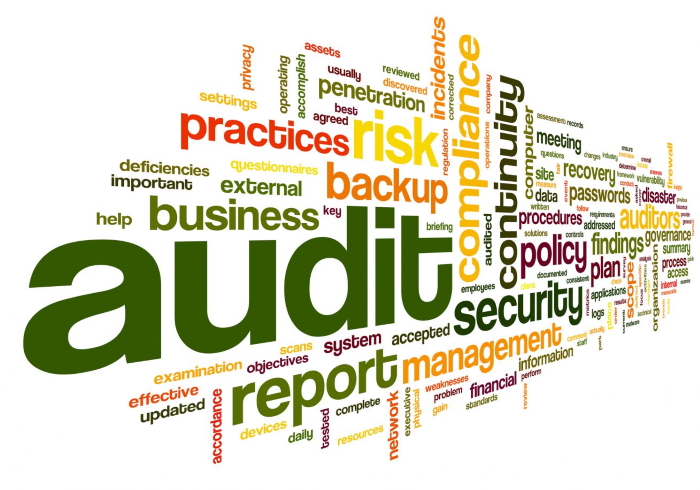What is a financial audit?
In general, auditing means examining information in a professional manner and expressing an independent opinion, referring to certain quality criteria.
Audit in general means the professional examination of information in order to express a responsible and independent opinion, by reporting to a criterion (standard, norm) of quality.
The term Audit is widely used, it originally had the meaning of Financial Audit to verify the financial statements, processes and transactions of a company. Currently, the scope of the notion of Audit is much wider and includes, but is not limited to: Operational Audit, Management Audit, Fiscal Audit, Quality Audit, Environmental Audit, Energy Audit. Depending on the field where this general principle is applied, there are many types of audit, from the financial-accounting to the audit of performance, information systems or data security policy.
If you visit our site, you are probably interested in financial audit and not other types of audit.
According to the definition published by the Romanian Chamber of Financial Auditors, “The financial audit represents the examination activity, in order to express by the financial auditors an opinion on the financial statements, in accordance with the International Financial Audit Standards of the International Federation of Accountants (IFAC)”.
FINANCIAL AUDIT
Financial audit means the examination performed by a competent and independent professional accountant on the financial statements of an entity (or parts of the financial statements) in order to express a reasoned opinion on the true, clear and complete picture of its financial position and position. the results (performances) obtained by it.
Mandatory features of the financial audit:
The examination of the information subject to audit is done by an accredited professional in the financial-accounting field
- The auditor is completely independent of the audited entity
- The audit of the information is based on a set of norms, quality standards adopted at national and international level, which the auditor has the obligation to respect. The existence of standards has the role of increasing the credibility of opinions
- The auditor’s responsible opinion is embodied in an audit report, providing a high (but not absolute) assurance that the audited information is presented honestly, in all material respects, in accordance with an identified accounting standard.
The area of diligence undertaken by the auditor and the entire set of procedures used by him to obtain evidence, are established based on professional reasoning, in compliance with standards.
The recipients of the audit report may be those in charge of the governance of the entity and / or third parties: the state through its institutions, various creditors, employees, shareholders, etc.
The public expects the statutory auditor to play a role in protecting its interests by providing assurance regarding:
– accuracy of financial statements;
– continuity of operation and solvency of the company;
– the existence of frauds;
– compliance by the entity with its legal obligations;
– the responsible behavior of the entity towards environmental and social issues.
Depending on the objectives pursued by the entity, there are two types of FINANCIAL AUDIT:
- INTERNAL AUDIT
- EXTERNAL AUDIT
INTERNAL AUDIT examines:
– observance of the operating rules established by the company, of the management decisions, distribution of tasks, work procedures, planning, etc.) the causes and possible consequences;
– the whole of the internal control system (preventive, management, hierarchical operative, etc.) and of the accounting system identifies the weaknesses of the management and internal control system, of the risks associated with them and makes proposals for the improvement of these systems;
– effective, efficient use, as well as the protection of financial, material and human resources, notifies cases of mismanagement, waste, fraud, makes proposals for prevention, elimination of causes, responsibilities.
The internal audit can be outsourced without changing the content of this activity.
THE EXTERNAL AUDIT can be:
STATUTORY AUDIT performed by a financial auditor (statutory), appointed by the General Meeting of Shareholders (Associates) (see Law no. 31/1990 republished, art. 160)
The Financial (Statutory) audit includes a basic mission and related missions.
The basic mission consists in the certification of the financial statements and of some specific verifications provided by the Law.
CONTRACTUAL AUDIT performed by a contractual financial auditor, ie a third party, based on a contract with the company.
The Contractual Audit is performed by the auditor, as a rule, if:
– The entity does not have a statutory auditor and wishes to entrust a competent specialist with a financial audit mission, similar to that of the statutory auditor.
– The contractual auditor has a competence, specialization, better adapted to a certain action (evaluation: internal control, fiscal; etc)
– The opinion of an auditor other than the statutory one is sought
– A particular control mission required by a third party, e.g. by a bank when granting a loan.
At the moment there is a confusion regarding the terms financial audit and statutory audit, which should be clarified:
The statutory audit is the legal financial audit, the legal control (even imposed by normative acts) that leads to the certification of the financial statements.
The term “financial audit” can be used to designate many other missions, such as:
– financial audit of computerized accounting procedures;
– the financial audit of foreign exchange operations in order to verify their regular presentation in the financial statements;
– the financial audit of the accounting of social expenses in order to verify the observance of the social legislation;
– financial audit on the fiscal situation;
– financial audit of customer accounts to verify whether the valuation of doubtful receivables was done in a prudent manner, etc.
In other words, any analysis, any control, any verification and any study of a section or part of an entity’s accounting or financial statements may be classified as a “financial audit”, provided that:
– the examination must be performed by a certified professional, independent of the entity,
– to respect the professional standards
– to end by expressing a qualified opinion in an audit report, intended for those in charge of governance or third parties

